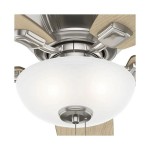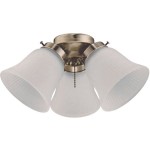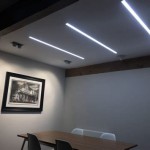Essential Aspects of Hanging Ceiling Installation
A hanging ceiling, also known as a drop ceiling or suspended ceiling, is a versatile and practical solution for a wide range of interior spaces. It offers many benefits, including concealing unsightly wires and pipes, improving acoustics, and providing flexibility in lighting and ventilation. If you're considering installing a hanging ceiling, here are the essential aspects you need to know:
Planning and Preparation
Before commencing installation, it's crucial to plan the layout of your ceiling. Determine the desired height and grid pattern, as well as the type of ceiling tiles you will use. Make sure to measure the area accurately and purchase enough materials.
Materials and Tools
You will need the following materials:
- Grid system (suspension system)
- Ceiling tiles
- Wall molding
- Tile clips or splines
- Safety glasses
Essential tools include:
- Drill
- Screwdriver
- Level
- Tape measure
- Utility knife
Installing the Grid System
Begin by marking the desired ceiling height on the walls. Attach wall molding along the perimeter of the room using screws. Then, install the main runners of the grid system perpendicular to the wall molding, spaced evenly apart.
Hanging the Ceiling Tiles
Use tile clips or splines to secure the ceiling tiles to the grid system. Start from the center of the ceiling and work outwards. Ensure the tiles are flush with each other and properly supported.
Lighting and Ventilation
Hanging ceilings offer flexibility in lighting and ventilation. You can integrate recessed lighting fixtures, ceiling fans, or air conditioning vents.
Maintenance and Repairs
Hanging ceilings are generally low-maintenance. However, it's important to inspect them regularly for any loose tiles or damage. If a tile becomes damaged, it can be easily replaced.
Additional Considerations
Consider these factors when installing a hanging ceiling:
- Height: Determine the appropriate height based on the room's size and purpose.
- Load capacity: Ensure the grid system can support the weight of the ceiling tiles and any additional fixtures.
- Fire rating: Choose materials with the required fire rating for your building code.
- Acoustics: Select ceiling tiles with acoustic properties to enhance sound absorption.
Benefits of Hanging Ceilings
Installing a hanging ceiling offers numerous benefits:
- Conceals wires and pipes, improving aesthetics
- Enhances acoustics by absorbing sound
- Provides flexibility in lighting and ventilation
- Allows for easy access to utilities
- Durable and low-maintenance
Conclusion
Hanging ceilings are an effective solution for improving the look, functionality, and acoustics of any interior space. By following the essential aspects outlined above, you can successfully install a hanging ceiling that meets your specific requirements. Remember, planning, proper materials, and careful installation are key to a successful outcome.

How To Easily Install A Drop Ceiling Ron Hazelton

How To Install A Drop Ceiling Ceilings Armstrong Residential

Installing Woodhaven Planks And Hiding Drop Ceiling Grid Sawdust Girl

Drop Ceiling Installation Ceilings Armstrong Residential

How To Install A Drop Ceiling Acme Tools

Drop Ceiling Or Drywall Which One Should You Choose

Drop Ceiling Installation How To Install A Homeserve Usa

Drop Ceiling Tiles Installation Tips Diy Family Handyman

How To Install A Drop Ceiling 14 Steps With Pictures Wikihow

Installing Woodhaven Planks And Hiding Drop Ceiling Grid Sawdust Girl








